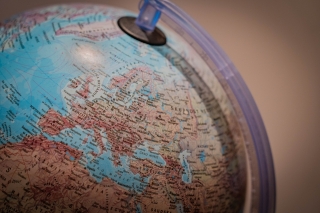The SARS-COV-2 & COVID‑19 Transnational Access Call Has Been Launched
What is Transnational Access (TNA)?
Free of charge Transnational Access to research facilities, services, resources and tools. ISIDORe TNA programme aims at supporting scientists by providing them access (physical, remote, or virtual) to facilities, equipment, expertise, services and resources that they do not usually have access to.
There are three ways for scientists of benefiting from TNA:
- In person (physical access), with users physically visiting the facility/installation and receiving the service “hands-on”
- Remotely (remote access), with resources and services offered without users physically visiting the facility/installation
- Virtually (through communication networks in which resources can be simultaneously accessed by an unlimited number of users)
The access is free of charge and includes the logistical, technological and scientific support and, when appropriate, the specific training that is needed to use the services provided by the research facilities.
Proposals for accessing any of the services of the ISIDORe partner facilities are eligible if they meet the following criteria:
- They have obtained an ISIDORe ID number through the pre-application form.
- Transnationality: the user group leader (project PI) and the majority of the users must work in a country other than the country where the installation providing access is located (except in case of remote access to a set of facilities in different countries offering the same type of service).
- Affiliation: Users must be affiliated to an organisation in the European Union. Applications from user groups with a majority of users working outside EU are eligible, though limits may be applied (max 20% of the total access available).
- Dissemination: User groups shall be entitled to and willing to disseminate the knowledge they will generate under the project, unless coming from the private sector.
Eligibility
The ISIDORe project is a very new type of action that is almost entirely dedicated to providing support to scientific communities. To do so as fast as possible, they are currently relying on temporary application modalities and procedures that will be improved as ISIDORe unfolds. Do not hesitate to contact them for any questions.
Proposals for accessing any of the services of the ISIDORe partner facilities are eligible if they meet the following criteria:
- They have obtained an ISIDORe ID number through the pre-application form.
- Transnationality: the user group leader (project PI) and the majority of the users must work in a country other than the country where the installation providing access is located (except in case of remote access to a set of facilities in different countries offering the same type of service).
- Affiliation: Users must be affiliated to an organisation in the European Union. Applications from user groups with a majority of users working outside EU are eligible, though limits may be applied (max 20% of the total access available).
- Dissemination: User groups shall be entitled to and willing to disseminate the knowledge they will generate under the project, unless coming from the private sector.
How to Apply
If you wish to benefit from the support of ISIDORe, you are requested to submit proposals that will be evaluated based on their feasibility and scientific merit (independent peer review).
Three steps to get free-of-charge access to theeir services:
- Browse the catalogue and identify the service that you need
- Fill out the pre-application form visible at the bottom of each service catalogue section pages and hit the ‘SUBMIT’ button
- After receiving an email with your ISIDORe ID number, follow the instructions to complete your application
Before you navigate the catalogue, please remember that for a pre-application submission:
- You will need an ORCID number. If you don’t already have one, please go to orcid.org to obtain your own in a few clicks.
- For multi-services requests, please contact here.
Source: Isidore-Project

